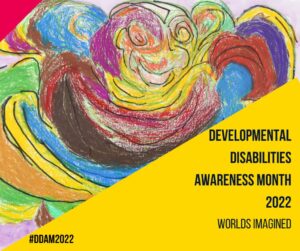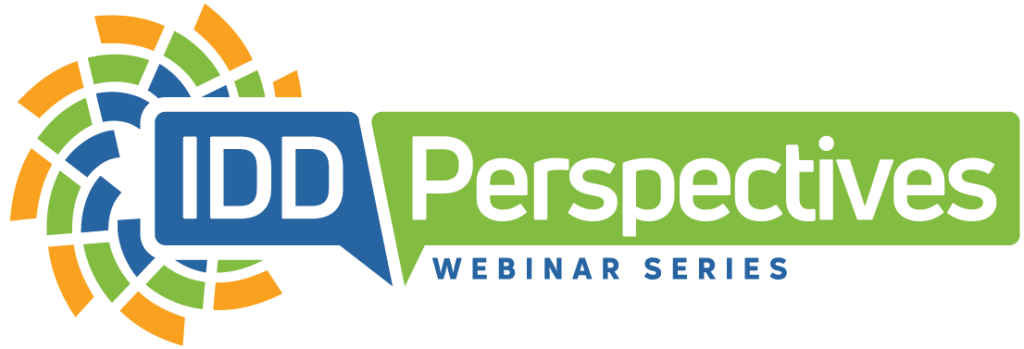
March 2022 is Developmental Disabilities Awareness Month-a perfect time to reflect on how far we’ve come-and how much further we have to go- to achieve health equity for people with IDD.
Health equity occurs when all people have the opportunity to experience the best possible health, quality of life, lifespan expectations and access to health care and health related social supports. Eliminating barriers to health equity allows people with IDD to participate fully in all aspects of community life, realize their dreams and mitigate the impacts of poor health and chronic disease burden.
Historically, people with IDD have faced significant barriers to health equity. These barriers stem from many sources, including early ideas about the “medical model of disability” which was predicated on the assumption that people with disabilities were sick, experienced poor quality of life and needed medical intervention to “cure” them.
While we have made progress in moving away from the medical model, people with IDD are still at risk for bias and stereotypes that perpetuate the perception that they experience poor quality of life-and as a result, may not be treated equally by the health care community. This is evidenced by the need for the US Department of Health and Human Services, Office of Civil Rights, to issue guidance in February 2022 citing the continuing public health emergency and reminding providers that resource scarcity must not prevent individuals with disabilities from receiving needed health care or treatment.
Next came the “social model of disability” emerging from the work of the World Health Organization (WHO), which separated the idea of disability from the idea of impairment and emphasizes inclusion of all people in all aspects of society, regardless of differences in everyday functioning.
More recently, other models of care have emerged including Disability-competent care (DCC) which focuses on supporting individuals to achieve maximum function and approaches each individual as a unique person, not based on their diagnosis or condition. “Disability inclusion” in health care highlights the need for people with disabilities to access the same health promotion and prevention activities as those who do not have a disability.
This evolution has contributed to improved health equity and significant increases in life expectancy for people with disabilities over the past several decades with the number of adults with IDD 60 years or older projected to nearly double from over 640,00 in 2000 to 1.2 million by 2030. But there is still much to be done.
As our thinking continues to evolve about how to reduce health disparities for people with IDD, there are three key approaches that could make a difference, including:
- Promoting health care self-efficacy and empowering people with IDD to advocate for equitable health care access. There are various resources and tools available for this, including materials developed by people with disabilities, the Centers for Medicare and Medicaid Services (CMS), and advocacy organizations. The same resources could be used to educate and empower supporters of people with IDD.
- Addressing the lack of education for medical professionals about people with IDD and their multiple and complex health needs, more frequent healthcare episodes and poor health outcomes. Most developmental medicine providers focus on pediatrics, leaving gaps in knowledge about supporting adults with IDD. The National Curriculum Initiative in Developmental Medicine is working to promote integration of the concepts of Developmental Medicine into the medical school curriculum of every medical school in the United States. Educating nurses and fostering the growth of nursing knowledge and expertise about optimal care of people with IDD is also critical and is the main goal of the Developmental Disabilities Nurses Association (DDNA). IntellectAbility’s Curriculum in IDD Healthcare eLearn course is being successfully utilized to provide fundamental IDD health training to practicing clinicians and health professions students.
- Recognizing the importance of partnering with state and federal public health initiatives to address gaps in health care for people with IDD such as those supported by the Center for Disease Prevention and Control (CDC).
As we celebrate National Developmental Disabilities Awareness, let’s be sure to reflect on what we can each do to continue and improve on the progress that has been made to promote health equity for people with IDD.




